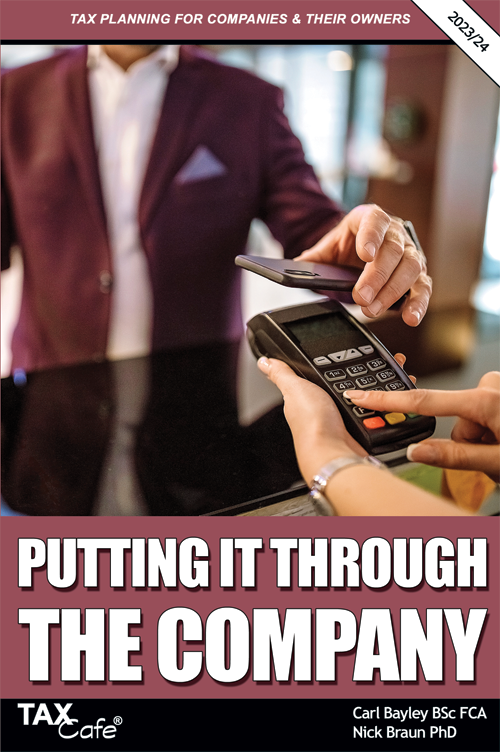Tax on Benefits in Kind
Pay Your Employees Tax-Free Benefits
If you cannot afford to give your employees a pay rise one solution is to give them a variety of benefits-in-kind – if you cannot pay them more, pay them more tax efficiently!
To understand what sort of tax savings are available you have to remember that an employee’s salary suffers three different taxes, two paid by the employee and one paid by the employer:
- Income Tax
- Employee’s National Insurance
- Employer’s National Insurance
With some benefits-in-kind ALL three taxes can be avoided, so there are significant savings to be had by both employees and employers.
Employer’s National Insurance is the tax most employees forget about or don’t even know about. It’s levied at 13.8% on all salary income over £7,488.
On a salary of £50,000 the employer will pay £5,867 in National Insurance – that’s a lot of money that could have been kept by the employer or used to pay the employee a better salary.
When you add all three taxes together, the total Income Tax and National Insurance rates paid on salaries are currently as follows:
• Income from £8,105 to £42,475: 45.8%
• Income from £42,475 to £150,000: 55.8%
• Income over £150,000: 65.8%
These combined tax rates are extremely ugly and I’ve never heard any politician mention them. They seem to live in a world where basic-rate taxpayers only pay 20% tax!
Premier League Benefits
Clearly any benefit in kind that avoids all of the three taxes is a much better alternative to cash salary.
The following are some of the benefits that are exempt from all three taxes:
- Workplace car parking
- Pension contributions
- One mobile phone
- Staff parties (costing up to £150 per head)
- Qualifying child care (basic rate tax relief only)
- Relocation costs
- Relevant training
- Bicycles
- Long-service awards
- In-house gyms and sports facilities
- Cheap/free canteen meals
- Gifts unconnected with work (e.g. wedding gifts)
- Electric cars
- Business mileage payments
- Work and safety clothes
- Overnight expenses if away on business
Each of these tax-free benefits is subject to specific rules.
The Second Division
With many benefits-in-kind, the employee has to pay Income Tax at the usual rates (20%, 40% or 50%) and the employer has to pay National Insurance at 13.8% BUT there is no employee’s National Insurance.
So most benefits-in-kind provide at least one tax saving: employee’s National Insurance.
The employee’s National Insurance saving doesn’t amount to much if the employee is a higher-rate taxpayer. Higher-rate taxpayers only pay 2% National Insurance.
However, for basic-rate taxpayer employees, the saving is more substantial because they pay 12% National Insurance.
Example
Gaelene, a basic-rate taxpayer, pays £600 per year for her gym membership at Jim’s Gym. Her employer, Trying to Please, offers to pay for her gym membership: Gaelene accepts.
Trying to Please contracts directly with Jim’s Gym and pays the £600 annual cost. Adding 13.8% employer’s National Insurance means the total cost to Trying to Please is £683. This amount is fully tax deductible, just like cash salary, so Trying to Please is not left out of pocket.
How much better off is Gaelene? She still faces an Income Tax charge of £120 but saves £72 of National Insurance (£600 x 12%).
Note that it is important that such an arrangement is structured correctly. If the gym membership is given in place of salary to which the employee has a contractual right, it may not work as planned.
The tax saving is not large but it is an annual saving, so the same saving will be reaped in future years.
What is more, this is just one of many benefits-in-kind that could be offered to Gaelene, so the total annual saving could be significant. For example, she could be offered a satellite TV package or medical insurance.
For the employer, the cost of providing a benefit is generally allowed as a tax-deductible expense because it is provided for the benefit of employees.
Further Savings - Discounts
If an employer has a significant number of employees, it may be possible to negotiate discounts with suppliers when contracting to provide employee benefits.
Example continued
Trying to Please offers gym membership to all of its 20 employees. The business obtains a 20% discount from Jim’s Gym. The cost of a
membership is normally £600. With the 20% bulk discount, the cost of an annual membership falls to £480.
So instead of paying a salary increase of £600 per employee, Trying to Please only has to pay gym memberships costing £480 per employee. Taking 13.8% National Insurance into account, the total saving is £137 per employee, or £2,740 for 20 employees.
Of course, the business may wish to structure things so that the employees share these savings, for example by offering gym membership plus a small pay increase.
Time Cost
Although benefits-in-kind can provide attractive tax savings for the employer and the employee, the time cost should also be factored in. It would be much less time consuming for Trying to Please to just pay Gaelene some extra salary than set things up with Jim’s Gym.
No one says being an employer is easy!
 The information contained in this article on benefits in kind is covered in detail in our popular tax guide:
The information contained in this article on benefits in kind is covered in detail in our popular tax guide:Putting It Through the Company
This unique and comprehensive guide is essential reading if you're considering saving tax using benefits in kind.



